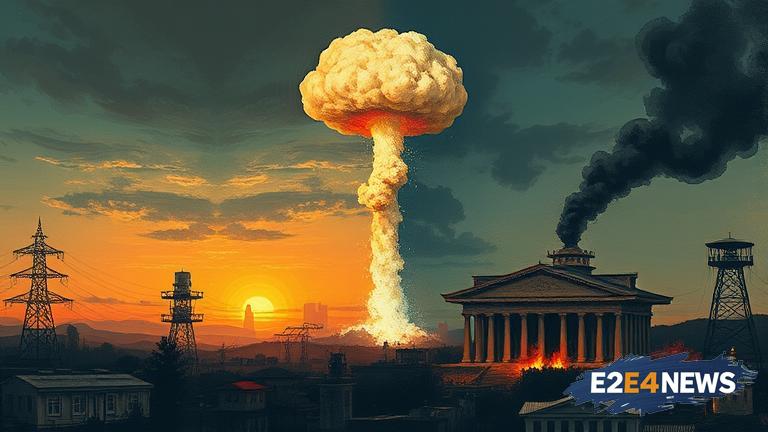On August 6 and 9, 1945, the United States dropped atomic bombs on the Japanese cities of Hiroshima and Nagasaki, respectively. The bombings, which occurred 80 years ago, were a pivotal moment in world history, resulting in unprecedented destruction and loss of life. The bomb dropped on Hiroshima, known as ‘Little Boy,’ exploded with a force equivalent to 15,000 tons of TNT, killing an estimated 70,000 to 80,000 people immediately. The bomb dropped on Nagasaki, known as ‘Fat Man,’ was even more powerful, exploding with a force equivalent to 21,000 tons of TNT and killing an estimated 39,000 to 80,000 people immediately. The bombings also had long-term effects, with many survivors, known as hibakusha, suffering from radiation sickness and other health problems. The bombings of Hiroshima and Nagasaki were the first and only times that atomic bombs have been used in warfare. The decision to drop the bombs was made by President Harry S. Truman, who believed that it was necessary to end the war quickly and avoid the need for a potentially bloody invasion of Japan. The bombings were the culmination of a series of events that began with the Japanese attack on Pearl Harbor in 1941, which drew the United States into World War II. The war in the Pacific was marked by fierce fighting and high casualties on both sides, with the United States and its allies making steady gains against the Japanese. As the war turned in favor of the Allies, the Japanese government refused to surrender, leading to the decision to drop the atomic bombs. The bombings had a profound impact on the world, leading to a new era of nuclear deterrence and the formation of the United Nations. The bombings also raised important questions about the ethics of warfare and the use of weapons of mass destruction. In the years since the bombings, there have been numerous efforts to promote peace and nuclear disarmament, including the creation of the Nuclear Non-Proliferation Treaty. Despite these efforts, the threat of nuclear war remains, and the bombings of Hiroshima and Nagasaki serve as a reminder of the devastating consequences of such a conflict. The bombings have also had a lasting impact on the cities of Hiroshima and Nagasaki, which have been rebuilt and now serve as symbols of peace and nuclear disarmament. The Hiroshima Peace Memorial Park and Museum, which was built on the site of the bombing, is a popular tourist destination and a powerful reminder of the devastating effects of nuclear war. The bombings of Hiroshima and Nagasaki have also been the subject of numerous books, films, and other works of art, which have helped to keep the memory of the events alive. In recent years, there have been efforts to preserve the stories of the hibakusha, who are now in their 80s and 90s, and to pass on their experiences to future generations. The bombings of Hiroshima and Nagasaki are an important part of world history, and their legacy continues to shape international relations and global security today. The events of 80 years ago serve as a reminder of the importance of promoting peace and nuclear disarmament, and of the need for continued efforts to prevent the use of weapons of mass destruction. As the world continues to grapple with the challenges of nuclear proliferation and global security, the bombings of Hiroshima and Nagasaki remain an important reminder of the devastating consequences of nuclear war. The United States and Japan have made significant progress in recent years in reconciling their differences and promoting peace and cooperation, but the legacy of the bombings continues to be felt. The bombings of Hiroshima and Nagasaki are a powerful reminder of the importance of promoting peace and nuclear disarmament, and of the need for continued efforts to prevent the use of weapons of mass destruction. The world must continue to work towards a future where such devastating events are never repeated, and where the threat of nuclear war is eliminated once and for all.
